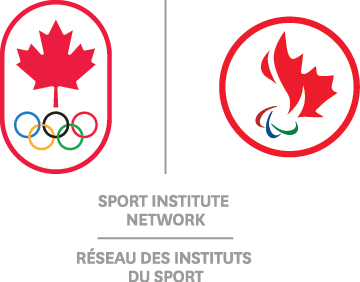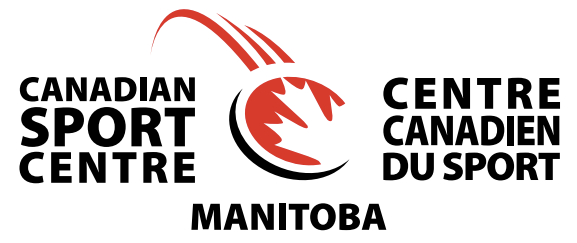Week 3: Preparing to Perform
Mental Performance
Think about driving a car. If you have gas in your tank (or a charge in your battery!), there are all kinds of things you can do. But driving the car uses up that fuel and once you run out you need to fill up again before you can do anything else.
Human beings work in a similar way. We need mental and emotional energy to fuel the things we want to do. Think of all the things you do in a day that, even if they are not physically difficult, require you to think hard or are emotionally stressful. These activities can empty your “mental fuel tank” and make it difficult to perform. Often athletes are so used to working hard and training that they forget to make time for recovery, leaving them without enough mental energy.
Here are some tips for keeping your “mental fuel tank” as full as possible. Increasing your fuel efficiency and refuelling whenever possible can help make sure that you have the energy to perform when you need it.
- Practice mindful awareness. Spending a few minutes noticing what you’re thinking about and where you’re spending your energy can help you make different choices if needed. For example, you might discover that you’re spending a lot of energy thinking about the pressure you feel from coaches or family. Neat, that’s helpful information. Is that where you want to spend your energy? If not, you have the ability to shift your attention to something else. If you’re new to practicing mindfulness, check out a couple of our favourite guided practices here and here.
- Deep breathing. Taking a few full, slow, deep breaths, where you allow your abdomen to inflate and shoulders to relax, can help to refill your tank. Try working your way up to inhaling to a count of 3 and exhaling to a count of 6. Pairing this with some mindfulness practice is a great combination!
- Make time for something you enjoy. Music, spending time in nature, cooking, playing a game, reading, time with family and friends – there are all kinds of great ways to give yourself an emotional boost. Experiment with a few and find what works for you! Remember: everybody refuels in different ways, and what you need today may not be the same as what you need tomorrow. That’s ok! Listen to yourself and give yourself permission to respond.
Dietetics
Boosting Your Immune System for High Performance
As a high performance athlete the stress of high intensity exercise, continuous travel and the competition schedule along with late nights and being in close quarters with teammates during the cold and flu season can take a toll on your body. Taking care of your immune system is vital. Luckily, there are many convenient, easily accessible foods that have excellent health benefits known to have a positive impact on the immune system. As a high performance athlete, it is especially important to follow a nutrition plan emphasizing nutrients that support the immune system in order to meet the high demands of training and competition to reduce the risk of illness and injury. Consider the following nutritional recommendations to support your immune system to set you up for success!
When are athletes most susceptible?
A common perception is that exposure to cold wet weather can increase the likelihood of catching the common cold but the available evidence does not support this. Most people are more susceptible to colds in winter (which is possibly due to reduced vitamin D status at this time) but numerous studies on athletes indicate that they tend to be most susceptible to picking up infections at times close to competition. This usually follows a period of intensive training and added mental stress with the anxiety of wanting to perform well. The worry for athletes is that even a mild infection can impair their ability to perform at the highest level. Preventing infections is therefore very important to them and they can help themselves by ensuring good personal hygiene, good nutrition and minimizing other life stresses.
- Eat antioxidant rich foods – Vitamins A, C, E and More!
- Eat foods rich in iron and zinc
- Eat foods rich in Vitamin D
- Include foods with probiotics & prebiotics – a dynamic duo!
- Focus on quality carbohydrates and protein before and after exercise
Remember, there is no single super food (or supplement) that will keep you healthy, well and performing. What will work is including a balanced approach by including a variety of quality foods packed with immune enhancing nutrients along with good hygiene (hand-washing), quality sleep, and staying active.
For more information and explanation on each of these tips: Boosting Your Immune System for High Performance.
Physical Prep
Before a major competition, it is important for an athlete to be at an optimal state which includes tapering the normal training program. Tapering is a systematic and progressive decrease in the training load of the athlete’s program, and it has three general types;
- Linear taper: this includes a gradual linear descension of the training load
- Exponential taper: the exponential taper is a gradual decrease in an exponential manner, and it has two categories; slow decay and fast decay
- Step taper: this is an abrupt decrease in the training load which remains stable throughout the tapering period.
When altering a training program, there are factors to consider such as the duration of the taper alongside the frequency, intensity, and volume of the training load.
In highly trained individuals, the intensity and frequency of a training program are typically maintained to preserve the physiological and technical adaptations that have been achieved. The volume however, is reduced by 41% to 60% on average and can climb up to 95% depending on the sport.
Tapers can last from 4 days to 5 weeks depending on the needs of the athlete or sport. When done properly, muscle damage repair, power, and strength are significantly increased. The improvements go beyond physical properties and athletes also experience psychological changes such as a lower RPE, more quality sleep, and an enhanced mood.
Uncertainty forces you to live in the moment. We must be flexible in our thinking of how we approach the circumstances we now find ourselves in.
Carolyn Lindner, Para-archery


